On the surface, the idea of visiting an old warehouse district may not sound very interesting. But once we were standing in front of Hamburg’s historic Speicherstadt, it was easy to see why this unique area is so popular. From the beauty of the buildings themselves to the appeal of the current occupants (who doesn’t want to visit a chocolate museum?!), there are lots of reasons to put the Speicherstadt district on the top of your list in northern Germany.

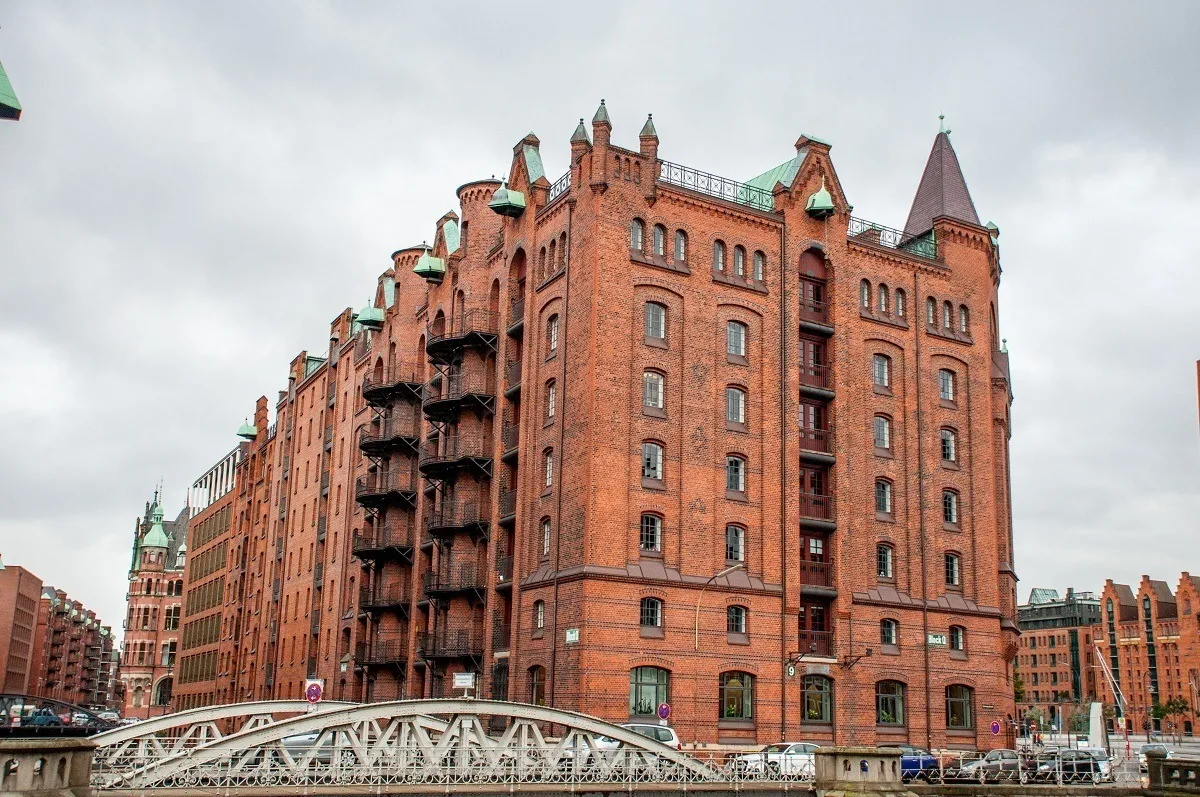
One of the largest warehouse complexes in the world, the Speicherstadt was constructed on oak piles, making islands in the middle of the Elbe basin. From 1885 to 1927, the warehouses took shape, comprising a duty-free zone in the heart of one of Europe’s largest ports. For merchants peddling coffee, tea, chocolate, spices, and other goods, this was the place to be.
Because much of the complex survived World War II, the warehouses hold an important place in history.
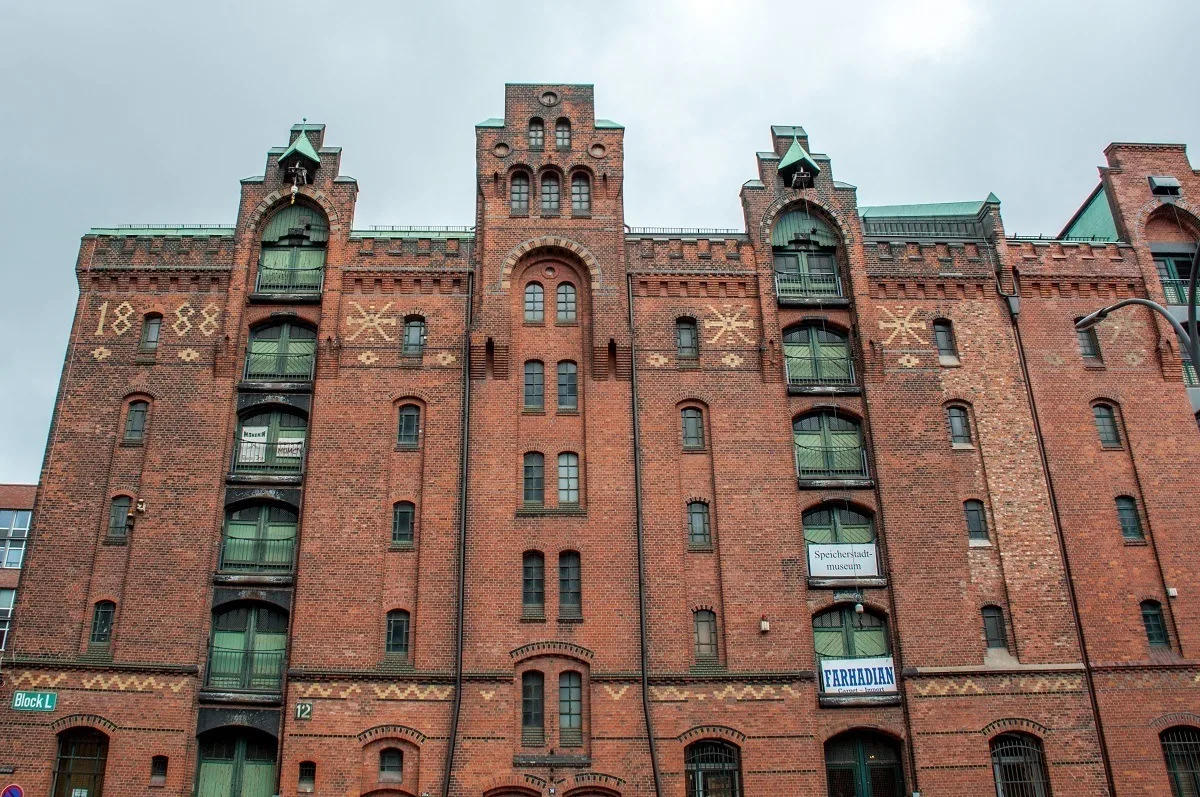
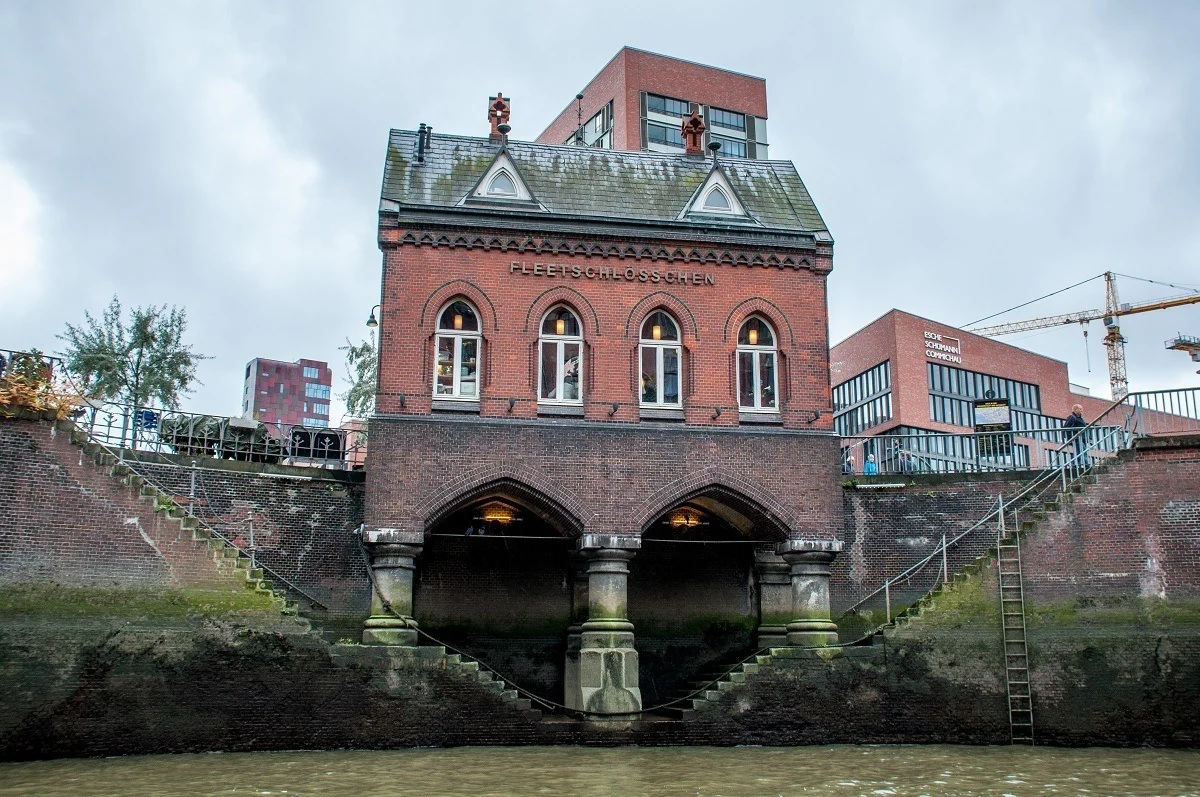
We started our exploration of the Speicherstadt (and, indeed the whole port of Hamburg) on a canal tour of the city. We saw the cranes, containers, and massive ships in the modern port all paused in the middle of moving goods from one place to the next.
In the older warehouse district, we learned the story of the place—its importance to the trade of Germany and Europe, the volume of goods stored here, and the money that moved through these waterways. As we watched the structures of the Speicherstadt soar overhead, it became clear that the real highlight of the district is the actual buildings themselves.
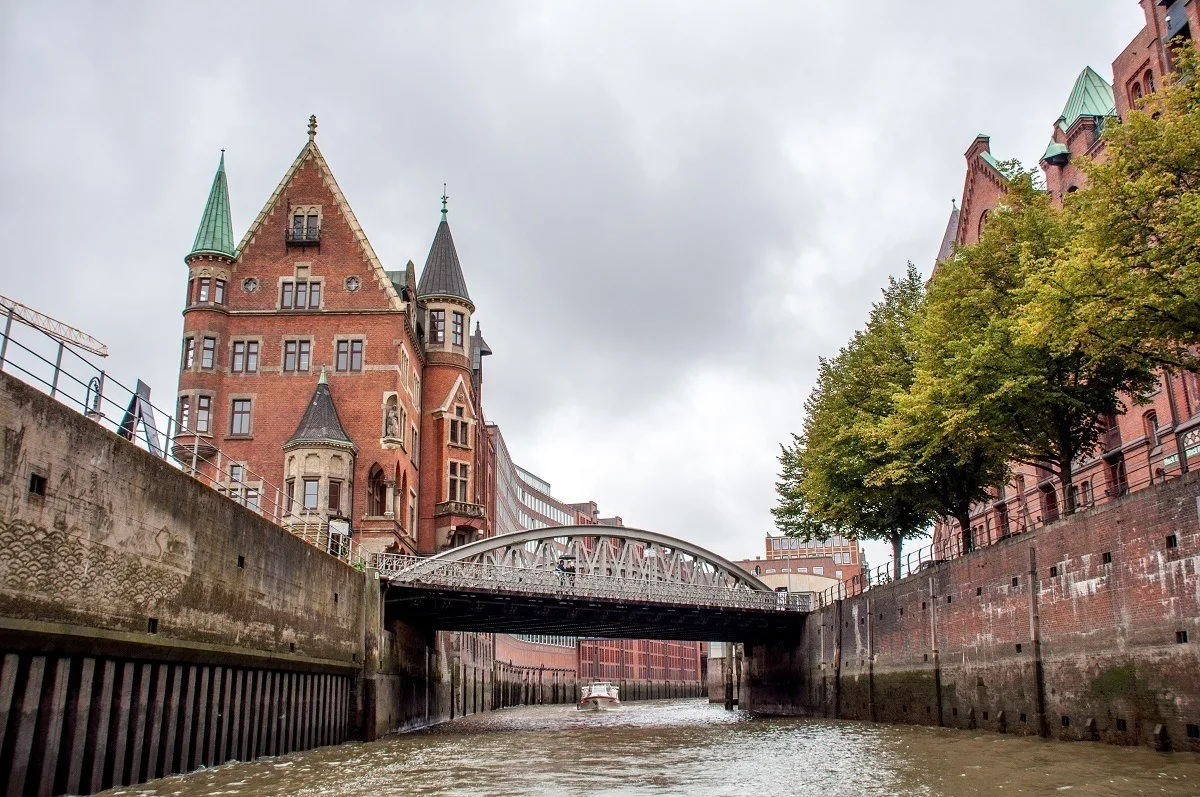
Beyond their use as massive storage facilities, the warehouses were built with aesthetics in mind. The massive red-brick buildings are criss-crossed with unique designs in contrasting black or tan brick. They are topped with turrets, dotted with arched windows, and decorated with other ornamentation that’s not always apparent until you look closely. Linked by narrow streets and bridges over the canals, Hamburg’s Speicherstadt is like a city within a city.
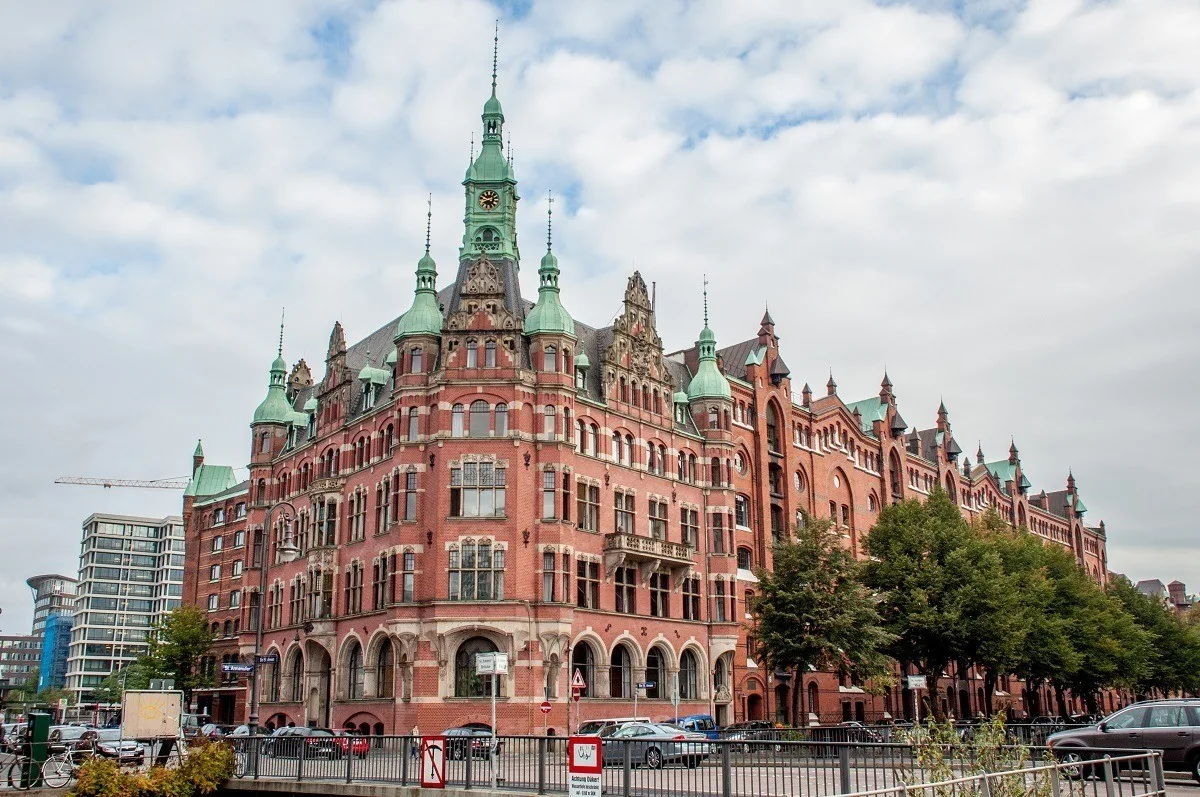
The thousands of merchants in the Speicherstadt needed room beyond the storage space to run their businesses, too. Enter the Kontorhaus District.
Adjacent to the warehouses, the Kontorhaus District was home to the first buildings in Europe to be used just for administration. But, like the warehouses, that doesn’t mean they were boring.
The Kontorhaus District and its most famous building, the Chilehaus, were constructed with lots of style. With unusual brick work, spiral staircases, and continuously moving elevators called paternosters, the office buildings had flare. For their form, function, and historical value, the Speicherstadt and Kontorhaus District were added to the list of UNESCO World Heritage sites in 2015.
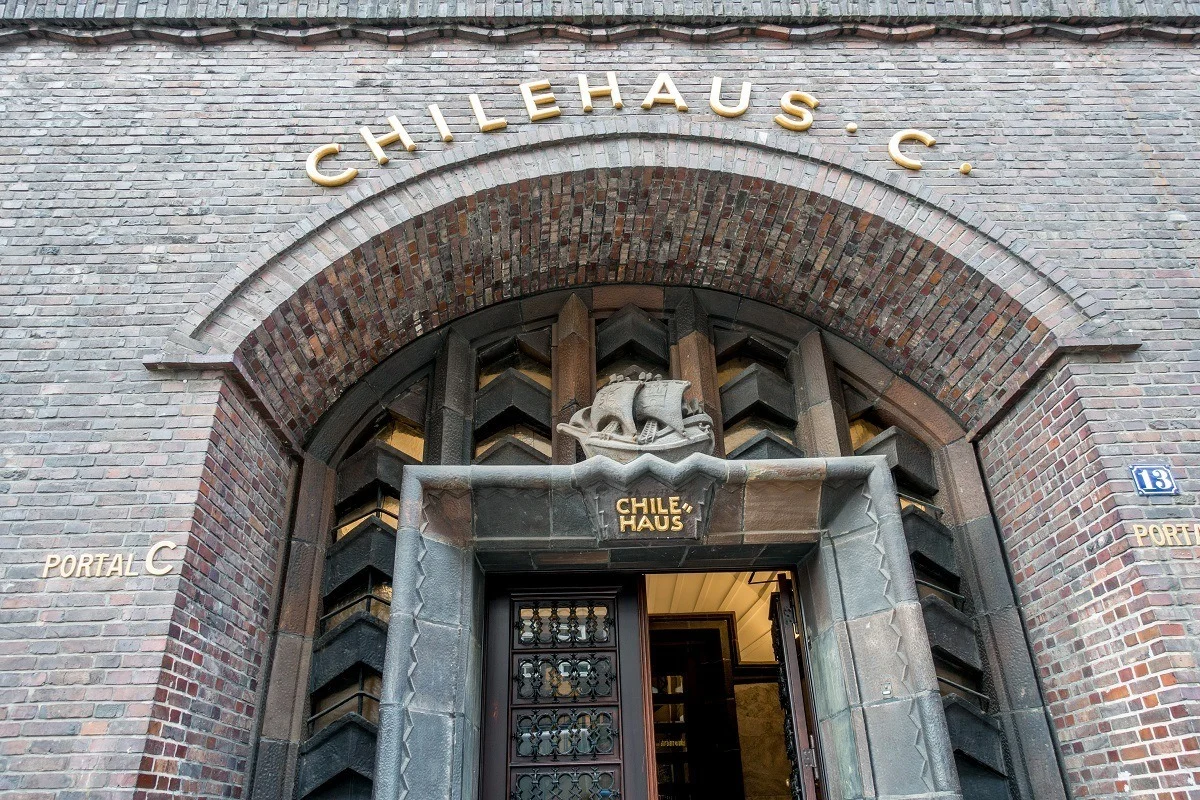
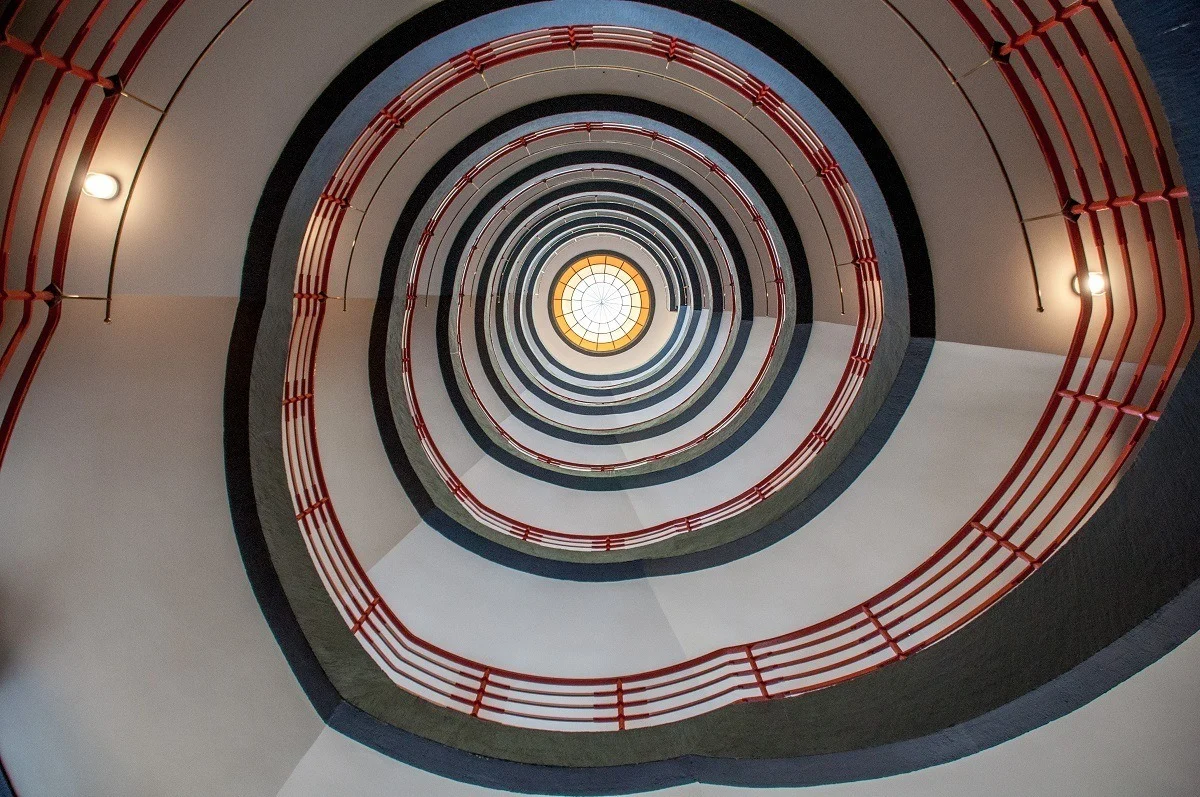
What to do in the Speicherstadt
The buildings in the Speicherstadt and Kontorhaus District are historic and contemporary at the same time. Originally built to help facilitate trade in Germany, 21st-century development has breathed new life into the warehouses.
Some of the buildings house cafes, shops, residences, and even the biggest tourist attraction in Germany—Miniatur Wunderland. Others are still used for their original purposes of offices or storage, particularly for oriental rugs. Two of our favorites let us dig deeper into the products that were once stored in the Speicherstadt—coffee and chocolate.
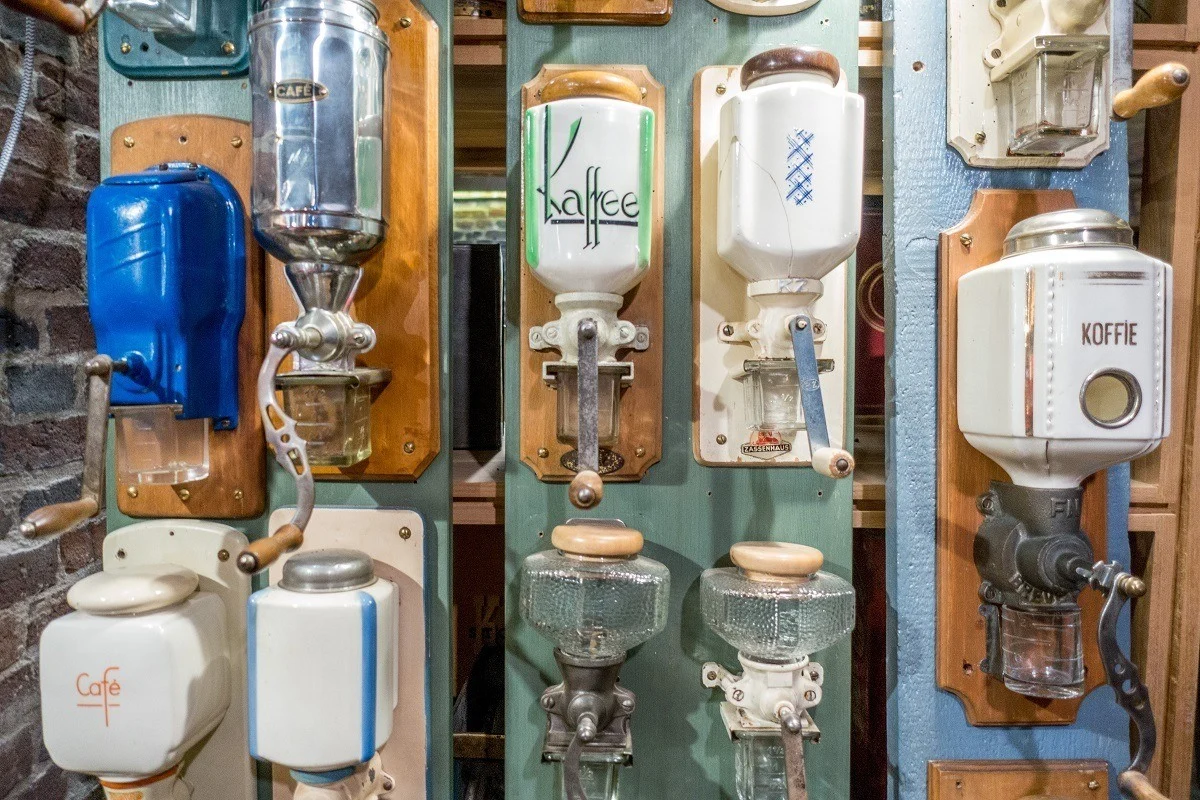
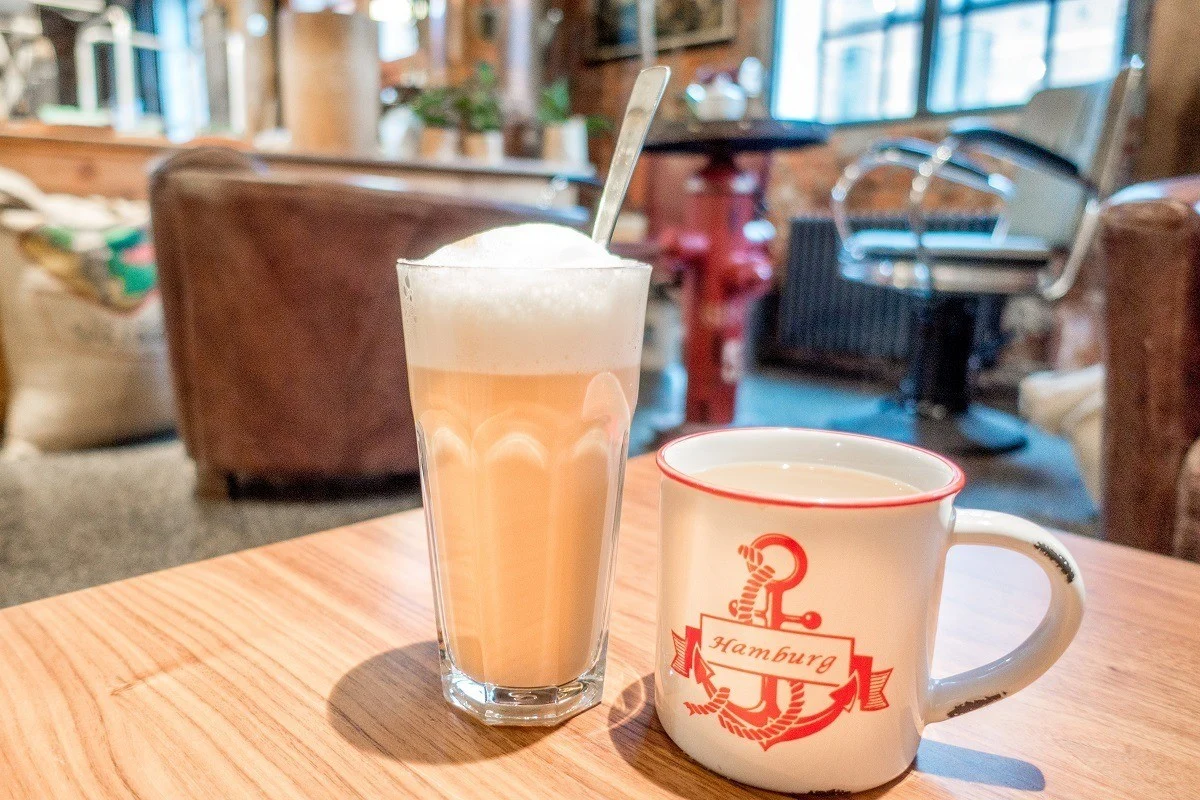
In 1887, the Speicherstadt was home to the third most important coffee exchange in the world (in today’s Ameron Hotel). So it was fitting that one of our first stops in the warehouse district was the Museum of Coffee. The building is a combination café and museum paying homage to the history of coffee in Germany.
The Museum of Coffee showcases everything from industrial roasting equipment to coffee grinders for the home. Just about every coffee-related item you could want is on display here.
When we finished in the museum, we headed upstairs for a latte and some pastries in the cozy café, which also features information about the history of coffee in the Speicherstadt. There’s also a great gift shop where you can find something to take home.
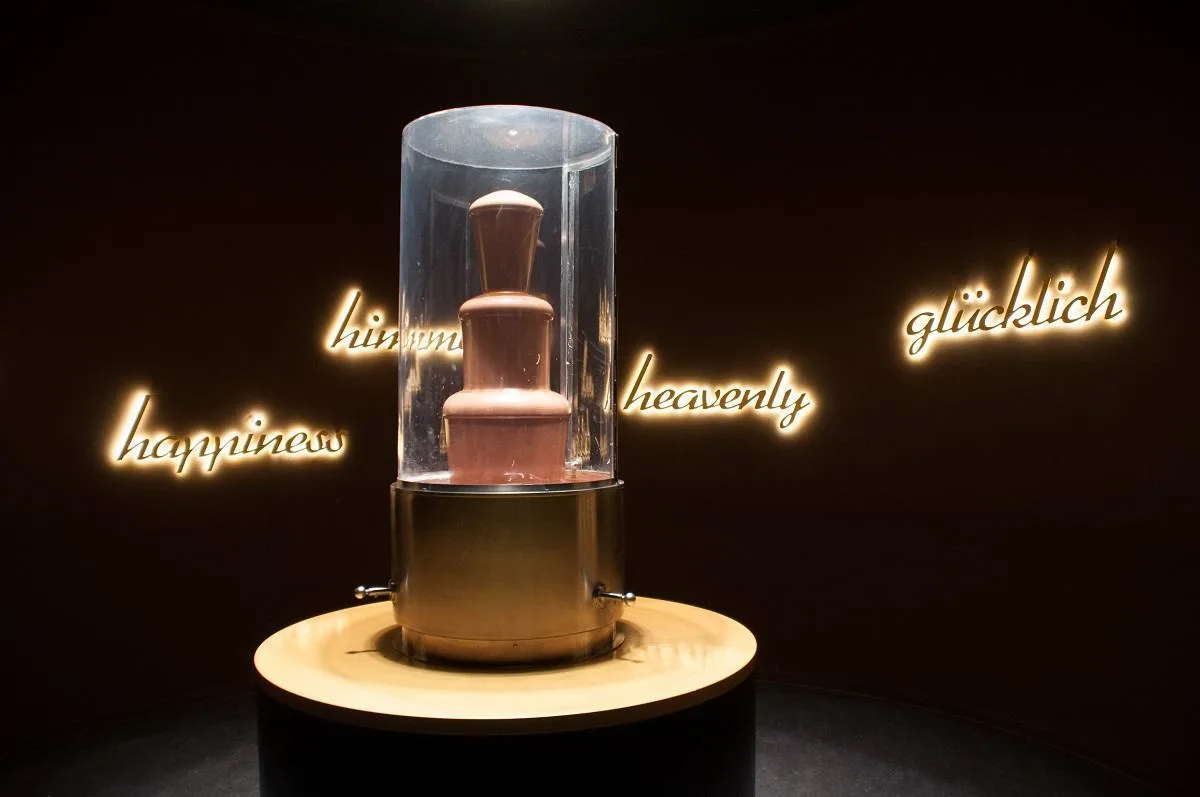
Nearer the Kontorhaus District, the Chocoversum is an interactive chocolate museum that shows every part of the process for making chocolate from growing cacao to wrapping the finished product. It shows how cocoa arrived in Europe and tackles topics like fair trade certification and child labor at a level appropriate for all ages.
One fun part of the Chocoversum tour is that visitors get to try the cacao at each stage in the production process. The raw product is a bit sour, but you watch it transform into silky, glorious goodness by the end of the visit (be careful not to get it all over yourself like we did).
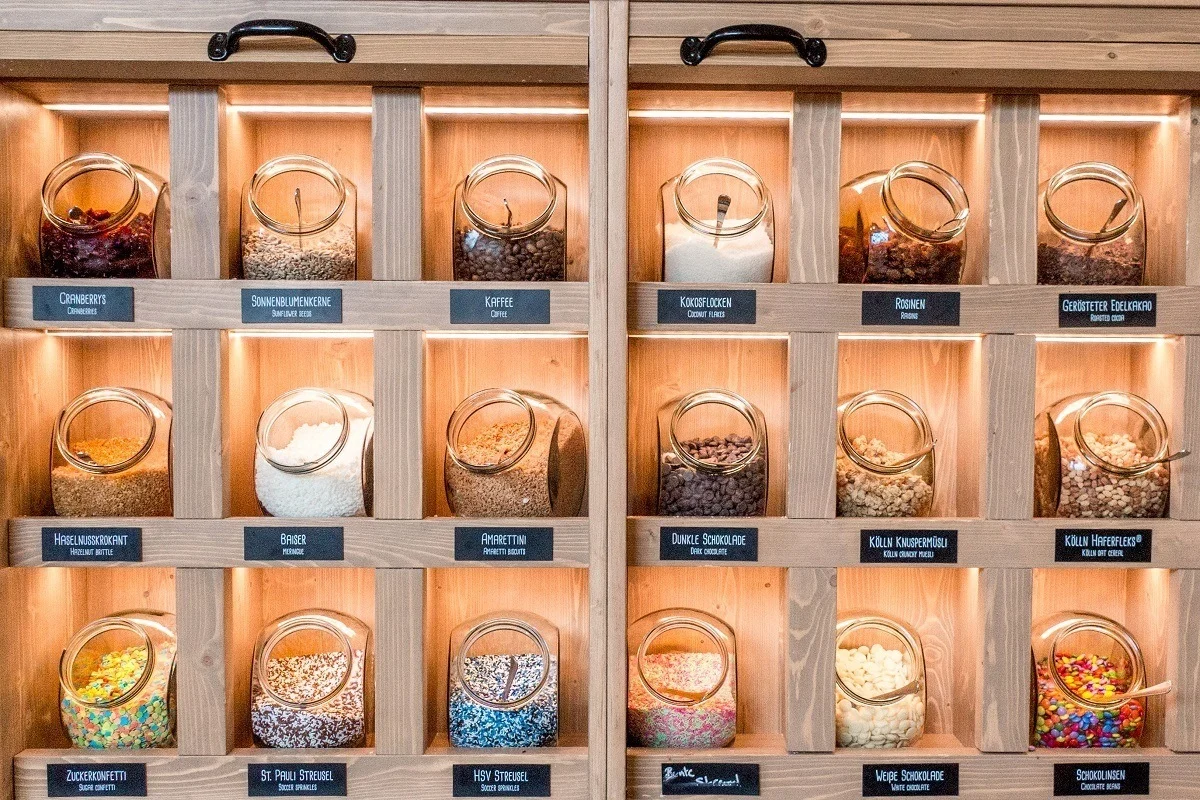
The highlight of visiting Chocoversum was getting to make our own chocolate bar. After choosing our preferred type of chocolate, it was time to dive into all the toppings. There were cranberries, chocolate chips, candies, and coconut, among many other choices. You can even add pepper and chili powder, if that’s your thing.
Like our visit to the Museum of Coffee, touring Chocoversum was a great way to bring to life the importance of the Speicherstadt and the products that were once kept there.
We visited the Speicherstadt and Hamburg thanks to the German National Tourist Board. All opinions of the fascinating and historic are our own.
Laura Longwell is an award-winning travel blogger and photographer. Since founding Travel Addicts in 2008, she has written hundreds of articles that help over 3 million people a year get the most out of their travel. In that time, she has visited nearly 60 countries on 5 continents, often returning to favorite destinations over and over again. She has a deep love of history, uncovering unexpected attractions, and trying all the good food a place has to offer.
In addition to Travel Addicts, Laura runs a site about her hometown of Philadelphia—Guide to Philly—which chronicles unique things to do and places to see around southeastern Pennsylvania. Her travel tips and advice appear across the web.

David Woutersen
Monday 4th of June 2018
Such an awesome area of Hamburg! Miniatur Wunderland needs to be visited if your in the neighbourhood!
Ali
Sunday 5th of March 2017
Speicherstadt is a great section of Hamburg! I've been twice, but only in the winter, so I'm hoping to make it back there in the summer someday. I'd love to take one of those canal boat tours, but it didn't seem worth it in December. Also, Miniatur Wunderland is **amazing** and so much more than model trains! I can't recommend it enough, totally worth spending several hours wandering around and looking at all the amazing detail that went into that place.
Lance Longwell
Sunday 5th of March 2017
Thanks Ali. Rest assured, we have a whole article on Miniatur Wunderland coming soon! :) We've got a lot to say on that topic.
frankaboutcroatia
Saturday 4th of March 2017
We've passed by Hamburg many times, but never actually visit it. It looks like a super-interesting place to visit. The architecture of these warehouses is beautiful. And who can say no to a chocolate museum?! Thanks for sharing!
Milena Yordanova
Tuesday 21st of February 2017
The architecture of the buildings in Speicherstadt is really beautiful! I would love to take a walk there.
Anne
Monday 20th of February 2017
Nice! We're traveling to Germany next month and it will be our first visit to that country. We won't be going to Hamburg but I'm still looking forward to seeing the atmosphere you described here.